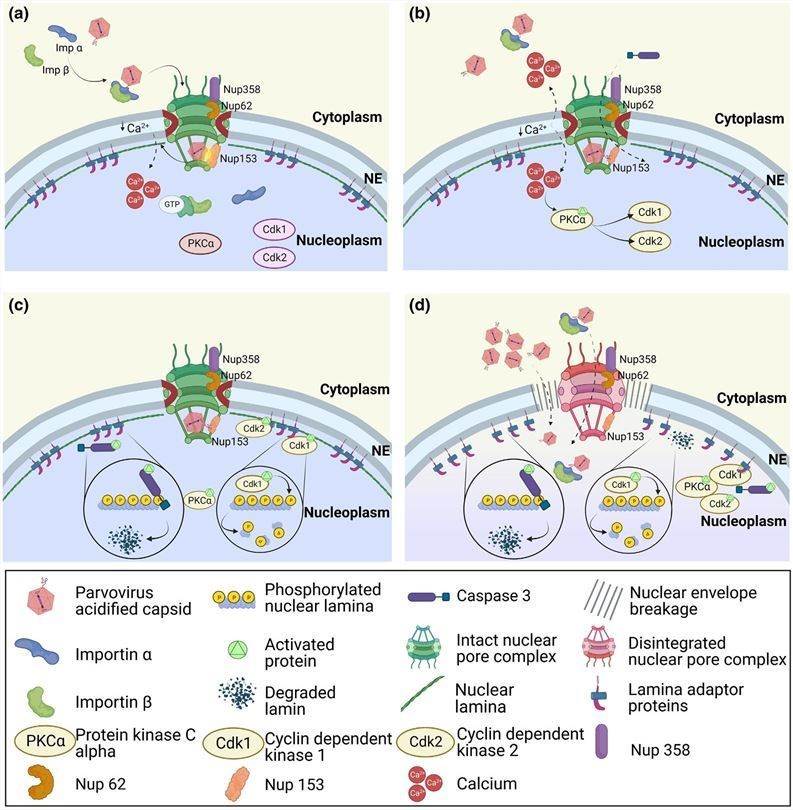Single-Stranded DNA Viruses-focused Research-grade Drug Discovery Service
Creative Biolabs is comprised of experienced scientists and research experts who possess a deep understanding of the biology and replication mechanisms of single-stranded DNA (ssDNA) viruses. We are dedicated to providing advanced research-level drug discovery services targeting ssDNA viruses to our clients.
Introduction to Single-Stranded DNA Viruses
Single-stranded DNA (ssDNA) viruses, as a group of microorganisms carrying ssDNA genetic material, are fundamentally different from their double-stranded DNA or RNA virus counterparts, displaying unique replication and transcription mechanisms. After invading host cells, these viruses' primary task is to convert their ssDNA into a double-stranded form, a process typically facilitated by the host cell's intrinsic enzyme systems. Once this conversion is complete, the resulting double-stranded DNA serves as a template, initiating the transcription and replication processes of viral genes. Subsequently, new virus particles are formed through a precise assembly process and are eventually released from the cell.
 Fig.1 Entry through the nuclear envelope by increased nuclear envelope permeability.1,2
Fig.1 Entry through the nuclear envelope by increased nuclear envelope permeability.1,2
Characteristics and Research Progress of Common ssDNA Viruses
-
Bacteriophage φX174
As the first DNA virus to be fully sequenced, bacteriophage φX174 has played a crucial role in the development of molecular biology. Its research has provided profound insights into understanding virus replication mechanisms, indirectly promoting drug discovery for other viral diseases.
-
Parvoviruses
Parvoviruses are a group of non-enveloped ssDNA viruses that infect mammals extensively. These viruses are small in size, highly resistant, and can survive in extreme environments. Depending on the host species they infect, parvoviruses are categorized into several subtypes, such as the human-infecting B19 virus, as well as canine parvovirus and feline parvovirus, which pose threats to the health of dogs and cats. Canine parvovirus is one of the most common types, primarily affecting canids and causing gastrointestinal and immunosuppressive issues. Currently, there are no specific drugs to treat canine parvovirus infections, and treatment mainly relies on supportive care such as fluid replacement, antibiotics to prevent secondary infections, and nutritional support. With further research into the characteristics of these viruses, we hope to develop more effective treatment strategies in the future to better manage canine parvovirus infections.
-
Circoviruses
Circoviruses are a group of extremely small non-enveloped ssDNA viruses with a circular genome structure. These viruses mainly affect birds and mammals, including pigs, chickens, and pigeons, among other animals. Pig circovirus (PCV) is one of the most well-known types of circoviruses. PCV can cause multisystem wasting disease and other related diseases in pigs, severely impacting the swine industry. Currently, there are no specific drugs for circovirus infections. Research into the biological characteristics and pathogenic mechanisms of circoviruses is ongoing in hopes of finding more effective treatment and control strategies to mitigate the impact of these viruses on agriculture and public health.
Comprehensive Drug Discovery Services for SsDNA Virus Infections
1. Research-Grade Virus Supply: We provide various ssDNA viruses for research purposes to meet different research needs.
2. Virus and Host Sequencing and Analysis: Combining advanced sequencing technologies, we conduct in-depth analysis of the genomes of viruses and their hosts, providing comprehensive genetic information to help researchers gain a deep understanding of the complex relationships between viruses and hosts.
3. Drug Screening and Evaluation: Using advanced high-throughput screening platforms, we can rapidly and effectively identify potential antiviral drug candidates.
4. Virus-Host Interactions and Virus-Drug Interaction Studies: Through detailed research, we explore the mechanisms of interaction between viruses and host cells, as well as the mutual influences between viruses and drugs, providing essential biological and pharmacological foundations for drug design.
Creative Biolabs is committed to being your strong support in the field of ssDNA virus research and drug development, focusing on accelerating and optimizing your research processes. If you are interested in developing drugs for a specific ssDNA virus infection, please feel free to contact us at any time.
References:
-
Mattola, S.; et al. Nuclear entry and egress of parvoviruses. Molecular Microbiology. 2022, 118(4):295-308.
-
under Open Access license CC BY 4.0, without modification.
For Research Use Only. We do not
provide direct services or products for patients.
Related
Services:
 Fig.1 Entry through the nuclear envelope by increased nuclear envelope permeability.1,2
Fig.1 Entry through the nuclear envelope by increased nuclear envelope permeability.1,2